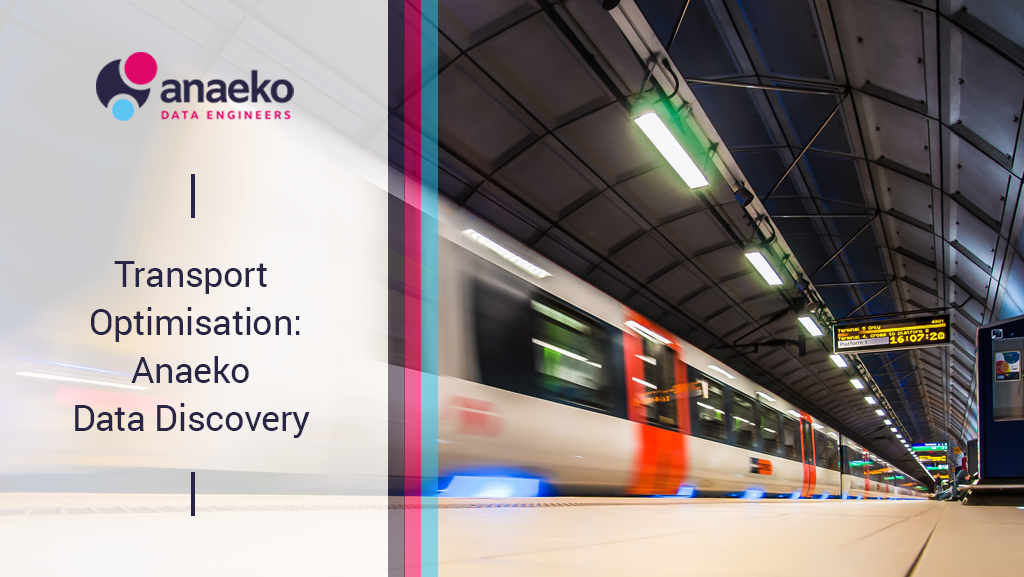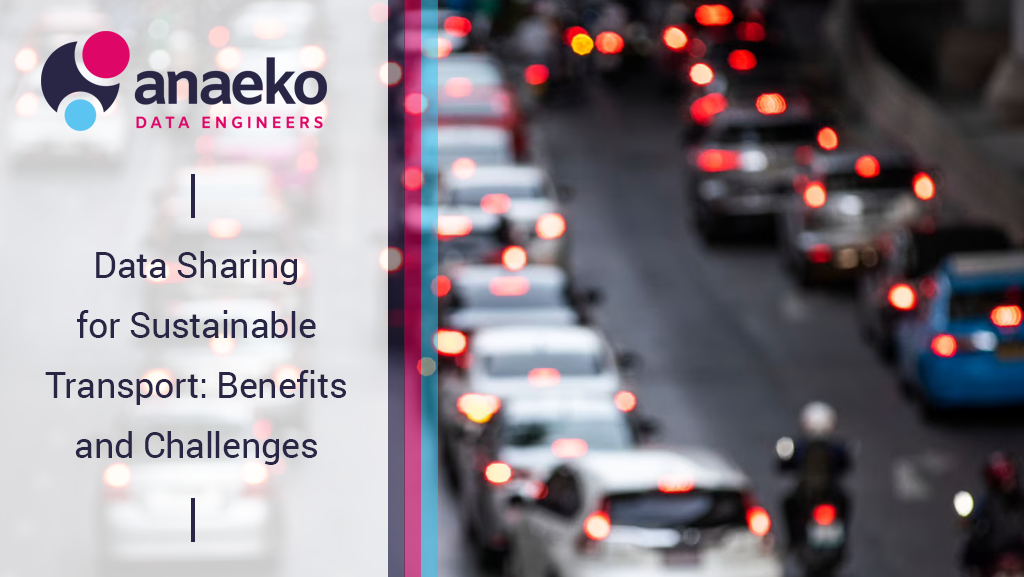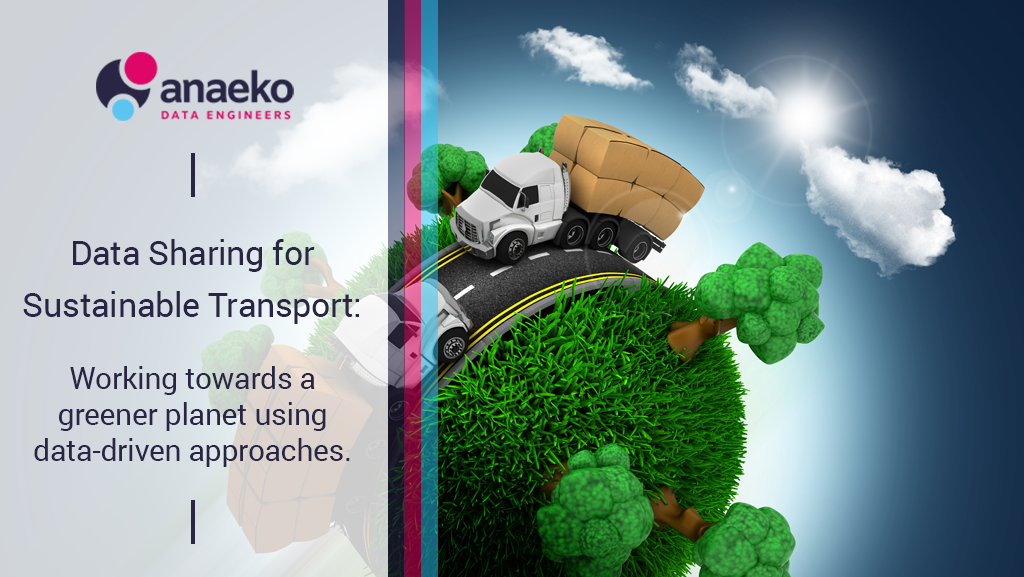Catch up on our recent webinar focused on sustainability within the transport sector. This is the third in a three part blog series that captures the discussions from the webinar.
My name is Colm Hayden and I am CEO at Anaeko. We've delivered over 500 projects in all kinds of sustainability objectives as customers move to most sustainable platforms. In the transport industry, we're engaging with vehicle manufacturers, telematics companies, and both public and private sector transport operators. There is the necessity for sustainability, driven by regulatory compliance, but I will also look at the business advantage it offers in terms of efficiency and customer attraction.
ASI (Avoid-Shift-Improve) Framework

The ASI framework is an approach aimed at enhancing environmental sustainability by adjusting behaviour to boost efficiency. Its primary objective is to minimise unnecessary journeys.
In personal travel, we can achieve this by opting for remote services whenever possible, as we are doing today. However, within the transport and logistics sector, there's a significant issue of wasted journeys. Eurostat data from 2020 revealed that 20% of road freight transport in the EU and 34% in Ireland was conducted with empty vehicles. This underutilisation of resources underscores the importance of understanding and optimising asset utilisation.
The Paris process on Mobility and Climate suggests that utilising spare vehicle capacity could potentially reduce UK carbon emissions by up to 8%. This highlights the substantial impact that optimising resource utilisation could have on creating a more sustainable transport industry.
Similarly, in the public sector, such as bus, rail, and metro operations, understanding passenger and freight capacity needs can help in avoiding wasted journeys. Thus, the key to minimising unnecessary journeys lies in comprehending the actual demand for transportation services.
The Shift aspect of sustainability focuses on transitioning towards more energy-efficient modes of transportation.
For those considering or already adopting electric vehicles, there's often a concern known as range anxiety—doubts about whether an electric vehicle can cover the necessary distance. Our focus is on helping businesses determine which of their vehicles are suitable for transitioning to electric vehicles, requiring detailed analysis.
The Improve component involves enhancing efficiency by meticulously tracking and analysing various metrics and data associated with transportation operations.
Internal and External Data Sharing
In the realm of transport sustainability, sharing data both internally and externally plays a crucial role.
Drawing from our experience across various transport sectors, such as rail, we collaborate with operators like Northern Ireland Rail to assist in long-term timetable planning. By employing passenger counting methods, we can accurately gauge peoples movement, plan capacity, and make near-term service optimisations.
For bus services, understanding peak vehicle requirements is essential. For instance, we collaborate with Ulsterbus to track and report on vehicle availability, servicing schedules, and deployment in urban areas.
In metro transportation, such as in city centres, we partner with organisations like Translink, aiding in the implementation of features like tap-on tickets with services like the Glider. This helps in understanding consumer behaviour, passenger movement patterns, and commuter profiles. The aim is to promote active travel, encouraging individuals to embrace mobility-as-a-service concepts. This involves seamlessly transitioning between different modes of transport to complete their journeys.
In both personal and commercial light vehicles, fleet managers are keen on determining the optimal time for replacing older vehicles and frequently consider transitioning to greener modes of transport.
Within the transport and logistics sector, the escalating fuel costs serve as a significant commercial incentive. By optimising fuel usage, companies can effectively reduce emissions.
Ultimately, by addressing driver shortages and adapting to evolving consumer habits, there's potential to enhance overall utilisation and efficiency.
3 Areas of Data Sharing

External data sources, include fuel supplier data, vehicle tracking platforms, and accident and incident reports.
Internally, data sharing involves gathering information on servicing, maintenance, repairs, vehicle types, departmental assignments, and budgets. This discussion is driven not only by environmental concerns but also financial considerations.
On the public-facing side, leveraging public sector open data and ensuring compliance with Corporate Social Responsibility Directive (CSRD) is crucial. Providing information through infographics for Environmental, Social, and Governance (ESG) reporting to consumers and customers is valuable, as they appreciate transparency. This data must be collected over time, collated for CSRD requirements, and auditable, similar to financial data practices in businesses.
Avoid: Understanding Translink Capacity

Let's dive into the "avoid" aspect, focusing on how to minimise wasted journeys. One of our current clients, Translink, operates across bus, rail, and metro services. Our main goal with Translink was to ensure the availability of vehicles, both buses and trains, to meet passenger demand effectively.
We analysed service operations, including vehicle engineering and the operation centres for buses and trains. Peak vehicle data was reported by depot and area, providing a comprehensive vertical view. This involves both top-down and bottom-up perspectives, enabling executives to align with organisational targets while accessing detailed information.
Horizontal data sharing within the organisation's systems was crucial, as well as external data sharing from third-party suppliers. For Translink, reporting to their parent body, the Department for Infrastructure, and meeting public service agreement obligations were imperative.
All these considerations involve costs, efficiency, availability, and capacity, all of which drive sustainability efforts. Our approach involves presenting summarised views on performance and customer experience, consolidating various KPIs across Translink's business, which could amount to around 400 key performance indicators.
By consolidating data from disparate systems internally and presenting it in an auditable manner, we facilitate informed decision-making and reporting, ultimately contributing to a shift towards more sustainable practices.
Shift: Decarbonising NI Water Fleet

Let's explore an example with Northern Ireland Water, providing essential services to citizens 24/7, 365 days a year, across all regions. They rely on 600 to 700 light commercial vehicles and heavy goods vehicles for their operations.
Recognising the importance of decarbonising their fleet, their Customer and Operations Director emphasises the need for an efficient and reliable fleet to ensure the delivery of essential services. When considering vehicle replacements, they must evaluate the economic life cycle of each vehicle, considering nuances across regions they serve.
Engaging various stakeholders such as finance, HR, drivers, department heads, and fuel suppliers is essential. Automation of reporting helps streamline processes and reduce costs.
Data sharing occurs both vertically and horizontally. Management requires summaries but also needs detailed row-level information. Harmonising data from different sources allows for comprehensive analysis, facilitating per-vehicle and per-vehicle type assessments.
By understanding depreciation, repair costs, and emissions impact, they can optimise vehicle replacement intervals, moving towards more sustainable transport solutions. This detailed analysis informs both the environmental and commercial cases for sustainable transport initiatives.
Where to Start?

It all begins with understanding the quality and availability of information. Through a discovery process, we assess third-party systems like telematics, fuel, and tachographs to determine the accuracy and real-time nature of the data.
Resilience and security are paramount, especially if sharing information externally. We ensure sensitive data such as driver information and vehicle identification numbers are redacted to maintain confidentiality.
Our approach is iterative, involving ideation, prototyping, and delivering incremental reports. Clients typically start with areas like safety, fuel efficiency, emissions reduction, and overall sustainability goals before progressing to capacity planning, route optimisation, and vehicle replacement strategies.
This journey towards sustainability is unique to each business, but the fundamental concepts remain consistent. We're here to assist companies in navigating this process, recognising that it's not just an environmental endeavour but also a strategic business decision.
If you're considering embarking on this journey and need assistance, Anaeko are here to help you get started. Feel free to reach out, and let's discuss how we can support your sustainability goals.
Join our next webinar:
Topics: Data Analytics, Predictive analytics, data discovery, data sharing, transport, sustainability




